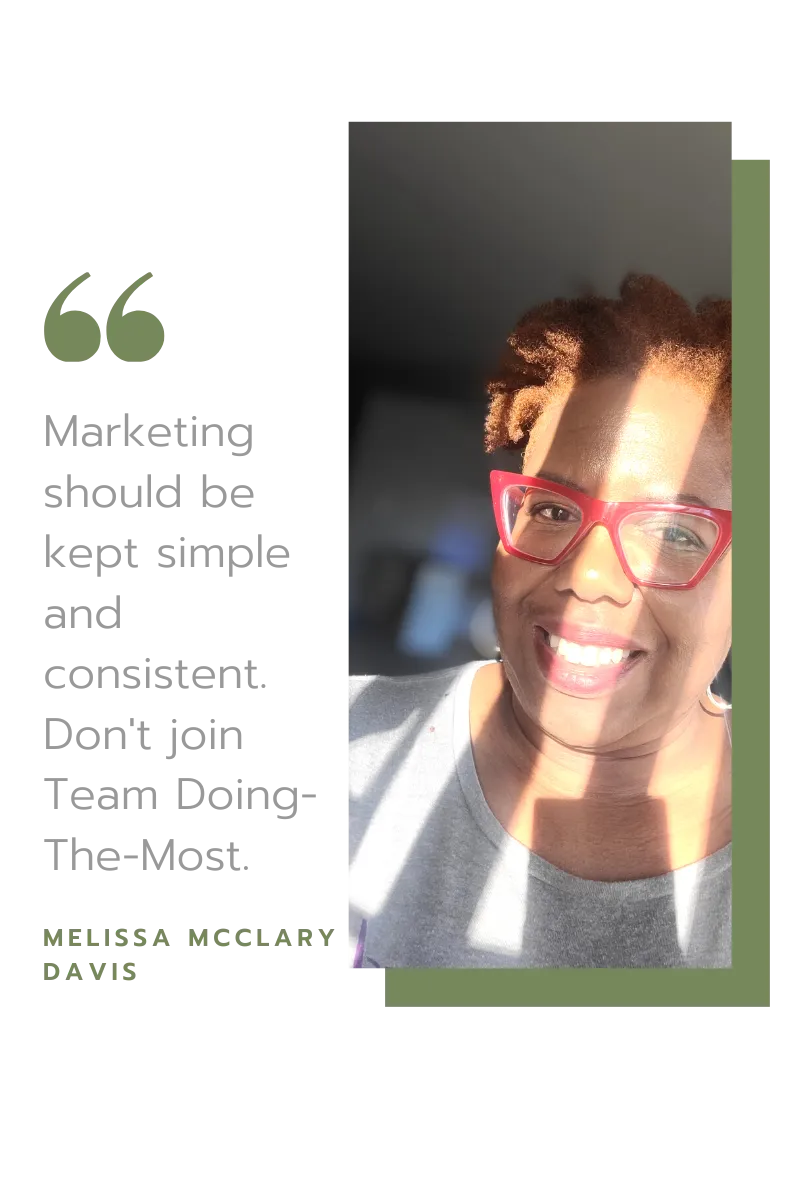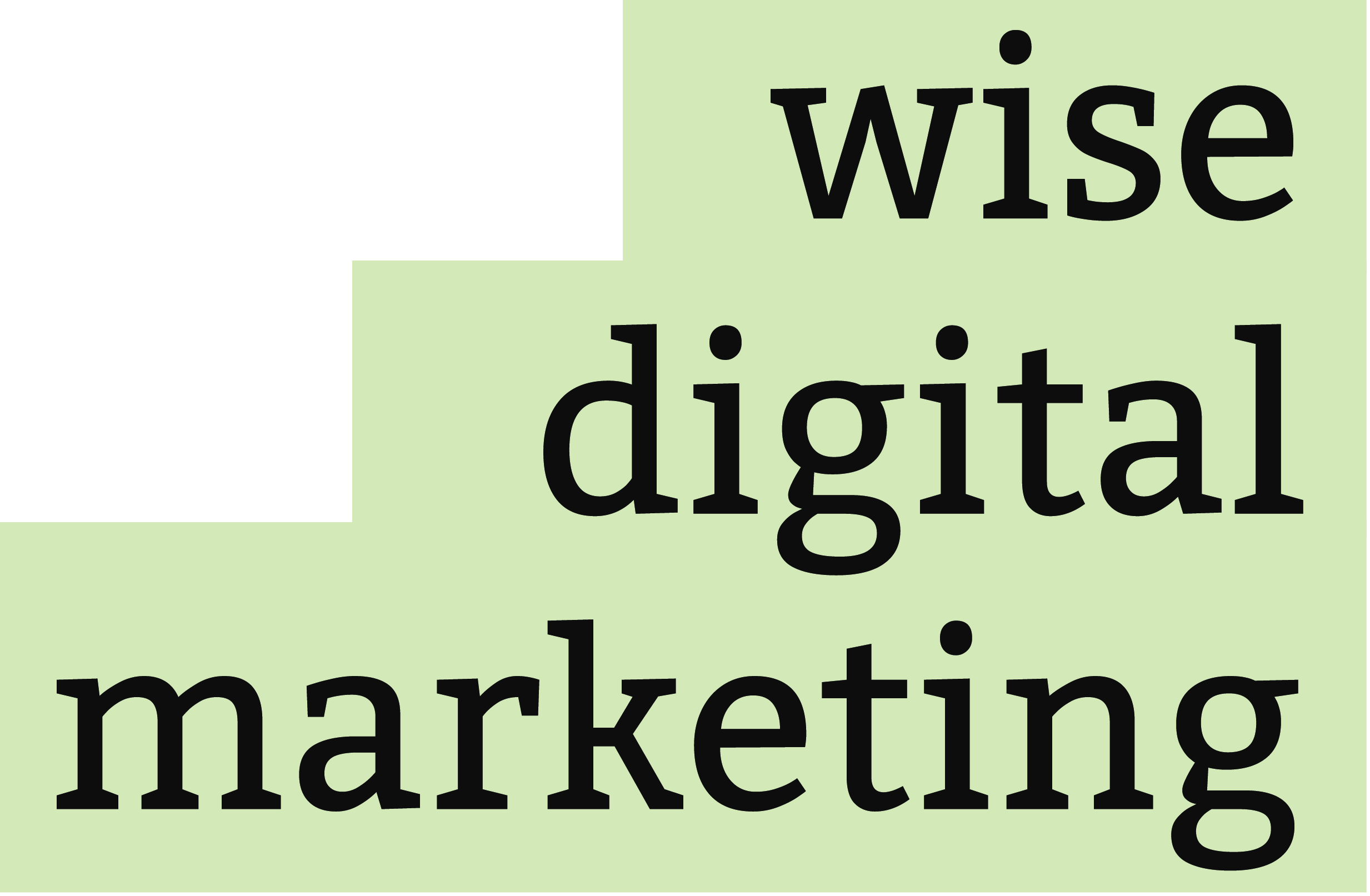"Wisdom comes from many experiences"
Melissa McClary Davis
is the Founder and CEO. She has established herself as a leading expert in the digital marketing industry with over 25 years of digital marketing experience with Fortune 500 companies in a diverse range of industries including
Coca-Cola, AT&T, Ford, General Motors, State Farm, Hallmark Cards, Lane Bryant, Best Buy, Facebook and Instagram.
In addition to serving the top corporate echelon, Melissa’s passion for problem-solving has also led her to provide top-tier marketing services to small business owners to support them in successfully navigating digital marketing. As a result, her clients achieve noteworthy sales conversion and high ROI with marketing strategies that reach maximum market shares in the digital universe.
Melissa leads a team of experienced strategists, data analysts, graphic designers, ad specialists with over 80 years of digital or marketing experience.

The WDM Blog & Case Studies

The Ultimate Guide to Marketing Mindset in the Digital Age
Marketing has been a critical aspect of business for as long as it has existed. With the advent of digital technology, traditional marketing strategies have evolved to accommodate the ever-changing landscape. In this digital age, having a traditional marketing mindset can be a significant advantage, especially when it comes to connecting with customers. We love digital over here but we also have a firm foundation of marketing. After all, digital is only an aspect. Marketing is marketing. 😁
In this article, we explore the value of a traditional marketing mindset in the digital world and how businesses can leverage it to reach their goals.
Understanding the Traditional Marketing Mindset A traditional marketing mindset is characterized by a focus on building relationships with customers. It is based on the principles of empathy, integrity, and authenticity. This mindset is centered on the idea that businesses should understand their customers and provide them with products and services that meet their needs. In traditional marketing, the focus is on creating a connection with customers through personal interaction, such as face-to-face meetings, phone calls, and direct mail. The goal is to build trust and establish a long-lasting relationship with customers.
The Benefits of a Traditional Marketing Mindset in the Digital Age While digital technology has changed the way businesses market themselves, a traditional marketing mindset remains as relevant as ever. Here are some of the key benefits of adopting a traditional marketing mindset in the digital world:
Authenticity: A traditional marketing mindset places a premium on authenticity. In a digital age where customers are bombarded with advertisements and marketing messages, authenticity can be a valuable differentiator.
Building Relationships: A traditional marketing mindset is centered on building relationships with customers. In the digital age, this means utilizing digital channels to connect with customers in meaningful ways.
Increased Customer Loyalty: By building strong relationships with customers, businesses can increase customer loyalty. Loyal customers are more likely to return, recommend your business to others, and make repeat purchases.
Personalization: A traditional marketing mindset recognizes the importance of personalization. By understanding their customers, businesses can tailor their marketing messages and offerings to meet their unique needs.
How to Leverage a Traditional Marketing Mindset in the Digital Age
Here are some strategies that businesses can use to leverage a traditional marketing mindset in the digital age:
Utilize Customer Feedback: Use customer feedback to understand their needs and preferences. This information can be used to improve your products and services and tailor your marketing messages.
Focus on Quality Content: Create quality content that provides value to your customers. This can include blog posts, infographics, videos, and other types of content that are relevant to your target audience.
Personalize Marketing Messages: Use personalization to create targeted marketing messages that resonate with your customers. This can include using their name in emails, offering personalized recommendations, and tailoring your website experience to their interests.
Use Social Media: Use social media to connect with customers and build relationships. Respond to comments and questions, share relevant content, and engage with your followers.
In conclusion, a traditional marketing mindset is as relevant in the digital age as it has always been. By focusing on building relationships with customers, personalization, and quality content, businesses can leverage the benefits of a traditional marketing mindset to reach their goals. Utilizing these strategies can help businesses stand out in a crowded digital marketplace and connect with customers in meaningful ways.
________________________
Are you struggling with marketing for your business? Let us help you! We specialize in crafting tailored marketing strategies that meet your unique business goals. With our detailed approach, you'll gain a clear understanding of your target audience, messaging, and tactics. Plus, we'll help you measure your success and optimize your campaigns for maximum ROI. Contact us for a free discovery call to learn more!
FAQS
What does a business management consultant do?
A business management consultant is a professional who provides expert advice and guidance to organizations to help them improve their overall performance and efficiency. They analyze the company's operations, identify areas for improvement, and develop strategies and solutions to address specific challenges. Consultants often work with businesses on a wide range of issues, including process optimization, cost reduction, strategic planning, and organizational development.
How much do business management consultants typically charge for their services?
The fees for business management consultants can vary widely based on several factors, including the consultant's experience, the complexity of the project, and the geographic location. Typically, consultants charge either an hourly rate, a daily rate, or a project-based fee. Hourly rates can range from $100 to $300 or more per hour, while daily rates can range from $1,000 to $3,000 or more per day. Project-based fees will depend on the scope of work and can range from a few thousand dollars to several hundred thousand dollars for larger, more complex projects. It's essential to discuss fees and payment structures with potential consultants during the initial consultation.
How long does it take for a business management consultant to deliver results or recommendations?
The timeline for seeing results or receiving recommendations from a business management consultant can vary depending on the nature and scope of the project. Some smaller projects may yield results in a matter of weeks, while larger, more complex initiatives may take several months to complete. The consultant should provide you with a clear project timeline and milestones during the initial engagement. It's important to note that the speed of results can also depend on how quickly the organization can implement the consultant's recommendations.

